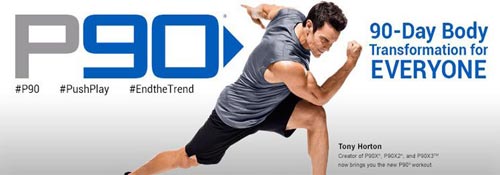Living in a post - industrial society that is shaping itself as we speak, we are becoming increasingly adept at forecasting the future. The rate at which change is manifested allows us to play futurists without much in the way of being wrong in our predictions. And if there is something that we unanimously chose to agree upon, it is that majority of things and the way we do them is going to change dramatically even before a decade goes by.

So how does this fact even remotely connects with the quotes by Seth Godin and Ken Robinson that I’ve prepared to share with you, and why I’m more than eager to bring up education and the way we think about jobs into this conversation?
Well, simply put, it feels as though there is a huge discrepancy between what we know - or pretend to know - about the future, and how we chose to proceed in the verticals I just mentioned above. And this runs counter to some conventional wisdom.
This article aims at stating the obvious when it comes to how far off we are in terms of educating ourselves, as well as how irrational we are when it comes to the way we think about professions.
Let’s talk about education
Trying to locate the problem (and I hope you will agree that there is one), it becomes convenient pointing at education. Education, as it is today, works just fine in a narrow band of circumstances. By contrast, the future becoming increasingly unpredictable makes much of what we learn in school to become obsolete in a handful of years from now.

The question then goes - as Sir Ken Robinson often repeated himself – why educating future generations for a future we know is going to surprise us?
“…There are things we are enthralled to in education, and one of them is the idea of linearity- that it starts here, and you go through a track, and if you do everything right you will end up set for the rest of your life… Life is not linear, it’s organic; we create our lives symbiotically as we explore our talents in relation to the circumstances they help to create for us.”
He then continues with:
“We have become obsessed with this linear narrative. And probably the pinnacle for education is getting you to college; certain sorts of college. And I don’t mean you shouldn’t go to college, but not everybody needs to go, not everybody needs to go now.”
Kids entering school today will finish their formal education somewhere around the year 2025. We don’t know what the world is going to be like in, say 5 years, yet we are educating them under a curriculum which is based upon what we currently now.
And this line of thinking can be traced even back to some of Alvin Toffler’s earlier works where, in his Future Shock, he states:
“The illiterate of the 21st Century are not those who cannot read and write but those who cannot learn unlearn and relearn.”
What Sir Ken Robinson later on goes making a point for is that human communities depend upon a diversity of talents. Not a singular conception of ability. It’s about creating a movement in education in which people develop their own solutions, but with external support, based on a personalized curriculum.
What I notice today - and you might not agree with me on this - is that education does a poor job teaching kids how to learn independently, how to adapt to circumstances, how to recognize market needs, and how to offer solutions.
And herein lays the second point I’m trying to make. As everything is changing at an awful fast of a rate, our conception about jobs and professions should be thoroughly rethought.
Evolve with your job or without it

Having one job for the rest of your life probably won’t do anymore. Circumstances change, skill sets become easily outdated. And if we want to remain valuable to the market - or to society if you so prefer - we must change as well. Meaning, at a bare minimum, learning new skills, learning how to implement them, learning how to offer them even.
And here is where I cite Seth Godin.
“The industrial age is over. It lasted for 80 years. For 80 years, you got a job, you did what you were told, you retired. And good people could make above average pay, for average work. And it ended.”
Think about it for a moment. Our entire society is being structured this way. Our education system, retirement policy, taxes… It feels as though we would gladly sacrifice pragmatism and opportunity, just to be able to hold onto feeling secure.
And there is no such thing as being secure. If 20,000 people could lose their job in Henry Motors in one day, what are we then talking about? Though, despite all this, we still pursue the feeling of security. And that seems about right except that we are doing a lousy job obtaining it.
Want to be more secure? Learn to recognize what the market needs and adapt your skill set accordingly. And this is where the notion of constantly educating yourself and the idea of organic-type education perfectly blends in.
There is still this demand for types of jobs that simply need to be done. And that’s fine. But if you are OK with doing a repetitive job which requires only a rudimentary set of skills, you would have probably closed this tab by now. Why not concern ourselves with those who want to contribute more, who want to find a new way that is not necessarily mapped?
And Seth Godin’s perceptions also overlap with Alvin Toffler’s predictions about the future:
“People have to change professions because professions quickly become outdated. People of post-industrial society thus have many careers in a lifetime. The knowledge of an engineer becomes outdated in ten years. People look more and more for temporary jobs.”
Working on projects

According to Seth, we live in a world of projects. Whenever one is finished, we should move to the next. And so on, and so on. It is easier now than ever to communicate and hence work together. So he wants to address another elephant in the room - working together on temporary projects, besides not only being possible, shows particularly apt.
People can come together in groups, do something, create something, and then form another group, and another, and another. The basic premise here is that there is no safety net, so why not approaching professions and jobs more organically, with the intent to adapt.
And here, only after connecting the dots, do I draw my point.
Entrepreneurship - or its basic principles at least - is what should guide us into choosing a profession, choosing how to adapt.
And this runs way deeper than just a simple shift in perception.
First, we should differentiate between jobs that are there “just because” and others that provide value to the market or, once again, community. This means learning how to adapt to what the market, or economy if you so prefer, needs.
Education, then, should aim at how to arm us with the knowledge to adapt, and moreover learn and relearn along the way. And taking in consideration how easy it is to connect with each other, another thing that education should aim for is teaching us how to communicate our ideas through.
It seems as though waiting for someone to give you a job is quickly becoming a losing proposition. Therefore, when we recognize the need on the market and have the skill set with which we can go about fulfilling it, knowing how to sell our service, idea or whatever becomes rather important.

This is a serious topic, but let’s not get carried away - here, a kitten for you!
We have to know how to convince others that our ideas, skills and services are of value. And this mindset is notoriously hard to acquire. That is, for previous generations were pretty much used to having someone doing this for them. Translated in vernacular, our goal is to become a one man show. Someone who can sense the need of the market, adapt his skills accordingly, get used to the idea of applying entrepreneurial principles as to be able to continue doing his job.
Creativity Is Everywhere and for Everyone
It seems that we should flex our creative muscles pretty hard if we want to sell our craft. For all I know, living off of doing what you want never seemed easier. There is a market for almost everything that you can think of, and having in mind how you can connect with other people and combine diverse set of skills, you can serve literally every need there is.
Two points I want to emphasize before wrapping this up.
- First, every profession could very much appreciate some entrepreneurial spin. Think music, photography, various types of art, craftsmanship, almost all things freelance. Another Seth Godin quote perfectly applies here:
“Pick yourself. Don’t wait for someone to pick you. If you have a book, you don’t need a publisher to pick you, you can publish it yourself; if you want to write, write; if you want to sing, sing; if you want to start a movement, start a movement. You can now make an impact if you want to.”
And this requires coming up with creative ideas on how to speak to the world and offer your knowledge, expertise, skills, services… This applies well if you are a photographer looking to find new customers, or even a baker, looking to get more people to taste your Tarte Tropézienne.
- And the second thing I want to emphasize, and what makes it even better, is that you can team up and along with someone else, and by making multitude of combinations of skills go where you never could’ve gone alone. If you are an excellent programmer but lack the designing skills, you can team up with someone and have your application up and running in no time. And this is how startup ideas get realized.
The thing is to go out there and tell the world how you can be of service. You can combine skills, connect with other people; offer valuable services, solutions, create products… Doing what you love might as well be as good a place to start as any.










I love this article!
Indeed, there is so much opportunity out there. No matter what you want to do, there will be some way to make it happen. As you so rightly said, it may take a little creativity but it can be done! Also, always so delighted to see another admirer of Sir Ken Robinson. Will tweet!
All the best
Jess
Thanks Jess :)